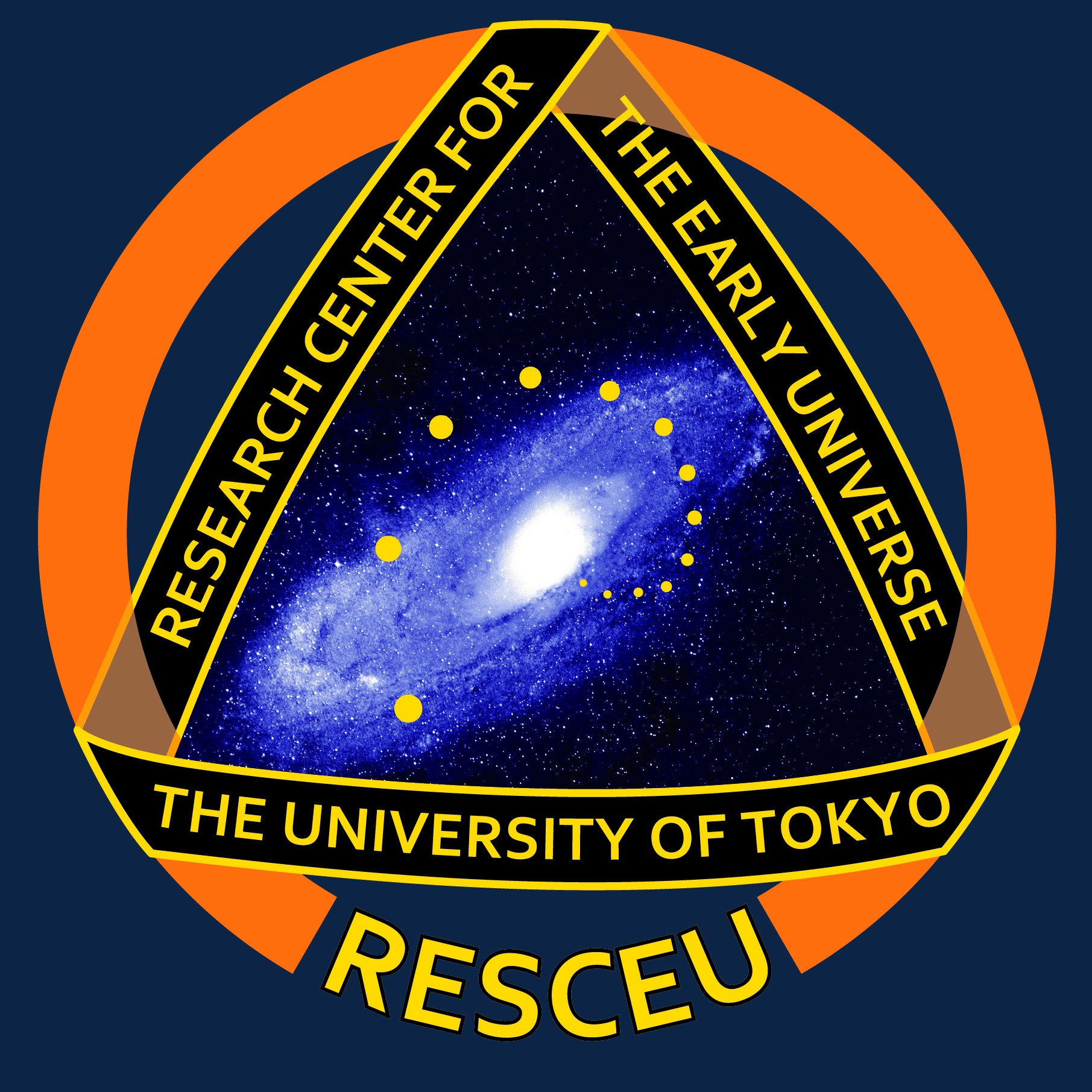RESCEU SYMPOSIUM ON
|
Great advances have been made in the accuracy of cosmological and astrophysical observations in recent years and we are fortunate enough to live, for the first time, in an era of precision cosmology. We have made the startling discovery that the universe is currently entering a new phase of accelerated expansion, in addition to that hypothesized in the inflationary scenario, and the realization that we understand less than 5% of the contents of our universe has forged a new alliance between particle theorists, cosmologists and astronomers.
Dark energy, dark matter and the contents of the early universe are enigmas still to be solved, though the wealth of data at our disposal is greater than ever before. With the help of accurate CMB data from COBE and WMAP, a standard model of cosmology has emerged, but many questions remain unanswered and observational windows remain untapped.
Potentially one of the most significant of these is that of gravitational waves. The upcoming Planck experiment will allow us to probe the polarization spectrum of the surface of last scattering, which may allow for the indirect detection of gravitational waves through the discovery of B-modes. Direct detection in the not-too-distant future is now also a realistic possibility and the Japanese large cryogenic laser interferometer KAGRA, whose construction started this year, will undoubtedly be at the forefront of new discoveries.
Turning our eyes to the contemporary universe, we see that gravity plays an essential role in our understanding of many interesting astrophysical phenomena, such as the stellar lifecycle, gamma-ray bursts and supernovae, as well as in the behavior of galactic black holes, pulsars and binary systems. In addition, gravitational lensing observations, pioneered by astrophysicists, have attracted the attention of cosmologists and high-energy physicists alike and are one of the most promising tools in the effort to uncover the nature of dark energy.
This meeting aims to offer an overview of recent developments and new directions in research on gravitation, cosmology, and relativistic astrophysics, with special focus on future gravitational wave observations and the valuable insights into relativistic phenomena and the early history of the universe we may be able to infer from them.
The topics to be discussed include but are not limited to quantum gravity and creation of the universe, string cosmology, inflationary cosmology, the generation and evolution of density fluctuations, observational cosmology, gravitational lensing, primordial and astrophysical black holes, gamma-ray bursts, sources of gravitational radiation, gravitational wave experiments and modified gravity models.
-
Host Institute:
- Research Center for the Early Universe(RESCEU),
The University of Tokyo
-
Local Organizing Committee:
- H. Asada, T. Chiba, H. Ishihara, T. Kajita,
- N. Kanda, S. Kawamura, M. Kawasaki, T. Kobayashi,
- H. Kodama, Y. Kojima, K. Kuroda, K. Maeda,
- K. Makishima, S. Mukoyama, T. Nakamura, Y. Nambu,
- M. Ohashi, K. Oohara, M. Sasaki, M. Shibata,
- T. Shigeyama, T. Shiromizu, N. Sugiyama, T. Suyama,
- T. Tanaka, A. Taruya, K. Tsubono, M. Yamaguchi,
- J. Yokoyama(chair)
-
Speakers include:
- Abhey Ashtekar, Matthias Bartelmann, Luc Blanchet,
- Yongmin Cho, Francesco Fidecaro, Andrei Frolov
- Toshifumi Futamase, Jaume Garriga, Jinn-Ouk Gong
- Yousuke Itoh, Takaaki Kajita, Roman Konoplya
- Hideo Kodama, Kei-ichi Maeda, Hideki Maeda
- Jerome Martin, Shinji Mukohyama, Mihoko Nojiri
- David Reitze, Misao Sasaki, Bernard Schutz
- Yuichiro Sekiguchi, Alexei Starobinsky, Teruaki Suyama
- Hideyuki Tagoshi, Masahiro Takada, Ryo Tsutsui
- Kent Yagi
-
Registration:
- Online registration can be done from here. The deadline will be September 25, 2012.
- 本国際会議は、学校教育法に基づく大学およびそれに準じた 研究機関に所属する研究者・大学院生を対象に開催するものであり、 専門的な学術講演によって構成されるものです。一般講演会では ありません。旅費補助の申請は締め切りました。
Registration fee |
5,000 yen |
Banquet fee |
3,000 yen |
-
Call for contributed talks/posters:
- We invide contributed talks and posters. They can be submitted from the registration page by the deadline September 25. Due to limitations of space and time, some talks may need to be presented as posters.
-
Inquiries to:
- Jun'ichi Yokoyama
- Research Center for the Early Universe, School of Science
- The University of Tokyo
- 7-3-1 Hongo, Bunkyo-ku, Tokyo 113-0033, Japan
- Fax:+81-3-5841-7638
- E-mail:jgrg22@resceu.s.u-tokyo.ac.jp
-
Supported by:
- Research Center for the Early Universe, The University of Tokyo
- JSPS Grant-in-Aid for Scientific Research (A) No. 21244033
“Cosmological nonlinear, nonperturbative gravitational phenomena" - MEXT Grant-in-Aid for Scientific Research on Innovative Areas No. 21111006
“Quest for the Ultimate Theory on the Basis of Direct Observations of the Evolution of the Early Universe” - JSPS Grant-in-Aid for Scientific Research No. 23540282
“Theoretical Study on Gravitational Waves from Fast Moving Sources, Strong Gravitating Sources and Early Universe”
Grant-in-Aid for Scientific Research on Innovative Areas, No. 24103006
"Theoretical study for astrophysics through multimessenger observations of gravitational
wave sources"

